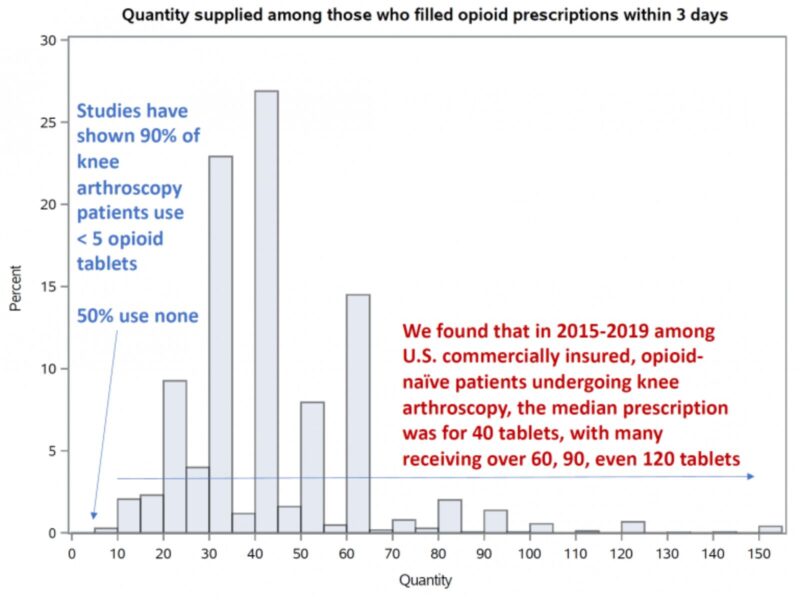Patients Get More Opioids Than They Need After Knee Arthroscopy
Study Finds Wide State Variation in Opioid Prescribing, Dosages
This article originally appeared on University of Pennsylvania Leonard Davis Institute Health Policy$ense blog.

In our new study in BMJ Open, we show that in 2015-2019 more than 70% of U.S. opioid-naive patients received an opioid prescription after knee arthroscopy. They received an average of 40 tablets, despite recent studies showing most patients end up taking less than 5 tablets. The take-home message? Despite recent attention to opioid stewardship, we find wide variation in opioid prescribing for the most common outpatient procedure and ample opportunity for improvement.
We looked at commercially insured patients who filled an opioid prescription within three days of their arthroscopy. Overall, 72% of patients filled an opioid prescription with a median tablet count of 40 and median morphine milligram equivalent (MME) of 250 (one oxycodone tablet – 7.5 MME). Patients with an invasive procedure, higher education level, and fewer comorbidities had higher rates of opioid prescribing.
Even after controlling for procedure type and patient characteristics, we find significant variation in the likelihood of prescription fills by state: 40% (South Dakota) vs. 85% (just over the border in Nebraska).
And likewise, we find significant state variation in the amount of pills and strength per prescription summarized as the total MME per prescription. The dosages prescribed were high and have been associated with transition to long-term use of opioids.
As summarized in Figure 2, we find a large gap between the number of opioid tablets patients need to control pain after knee arthroscopy, and the amount of opioids these patients are currently receiving. Substantial opportunities remain to reduce practice variation with the development and implementation of knee arthroscopy-specific opioid prescribing guidelines.

The study, “State-level variation in opioid prescribing after knee arthroscopy among the opioid-naïve in the USA: 2015–2019” was published online in BMJ Open on August 26, 2020. Authors include Benjamin Ukert, Yanlang Huang, Brian Sennett, and M. Kit Delgado.
Benjamin Ukert and M.Kit Delgado are former CHERISH Pilot Grant Award Recipients. Research reported in this publication was supported by CHERISH Pilot Grant Funding.